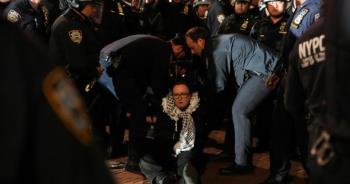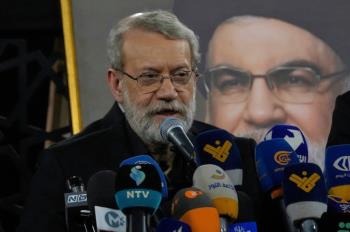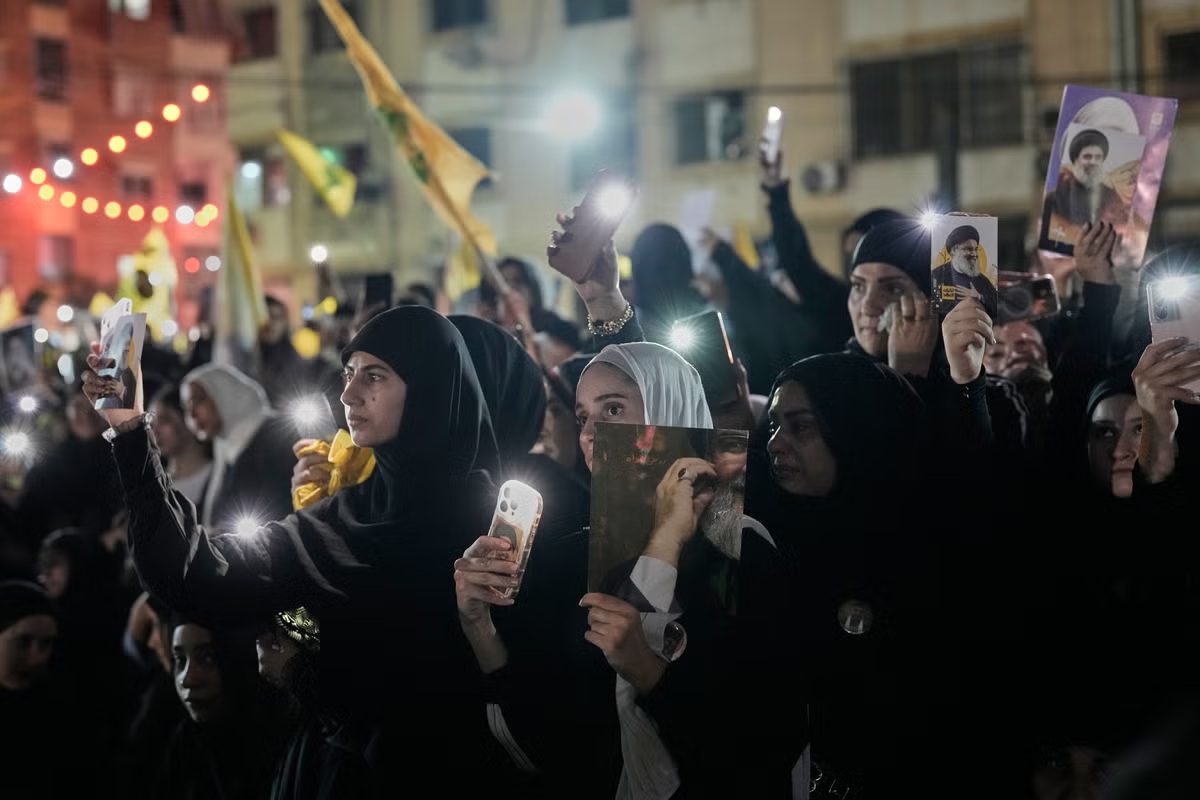Alwaght- Over the past two days, Lebanon has witnessed people marking the first anniversary of martyrdom of Hezbollah Secretary-General Sayyed Hassan Nasrallah and his aide Sayyed Hashem Safieddine.
The first anniversary events were held with a massive turnout in the southern Beirut as the bastion of Hezbollah. The participants vowed they will continue the path of their martyrs, chanting "labbayk ya Nasrallah" (we are at your service Nasrallah) in a show of loyalty.
A memorial ceremony began at 4:30 PM Lebanese time at the shrine of Sayyed Nasrallah in the south. Simultaneous gatherings took place at the tombs of other Hezbollah figures, Sayyed Safieddine and Sayyed Abbas al-Mousawi, the second secretary-general of Hezbollah who was also assassinated by Israeli regime in 1992.
At precisely 6:21 PM, the moment of Sayyed Nasrallah's martyrdom, a moment of silence was observed.
Journalists estimated that crowds lining the routes to his shrine numbered in the hundreds of thousands. Meanwhile, reports confirmed that Israeli drones flew over the Dahieh (outskirts) of Beirut during the ceremony.
Lebanese President Michel Aoun in a message called for unity, stating that Lebanon can only be saved through a single government and army, adding that this "painful anniversary is a moment of unity and strengthening of the belief that Lebanon can survive only through a single government, a single army, and constitutional institutions that save its sovereignty and dignity."
One year after his death, Hezbollah appears not only to have avoided collapse but used the elaborate ceremonies to flaunt its enduring power. The strategic balance Sayyed Nasrallah established with Israel remains intact, underscoring that resistance is the primary choice and has the last word.
Anniversaries held outside Lebanon
Commemorations for the former Hezbollah leader also extended beyond Lebanon, with significant ceremonies organized across the region.
Yemen: Large crowds gathered in Sana'a to mark the late chief of the allied Hezbollah.
Iraq: Thousands of Iraqis held a major rally in Baghdad's Tahrir Square on Saturday evening. The event featured a speech by Jawad Nasrallah, the son of the late leader.
Iran: Ceremonies took place in the capital Tehran and other cities. The foreign ministry issued a statement praising Nasrallah's role in strengthening Lebanon's deterrence against Israeli aggression and reaffirming Iran's support for a "powerful and dignified Lebanon." Simultaneously, Ali Larijani, Secretary of Iran's Supreme National Security Council, flew to Beirut to attend the main anniversary ceremony.
Message from Iraqi resistance
Sheikh Akram al-Ka'abi, the head of Al-Nujaba resistance movement, in a view message for the anniversary, addressed the US, warning: "With the barbaric and insane path you have chosen, you will soon experience the consequences of our warnings—not as a theoretical threat, but as a tangible and hard-hitting reality. These acts of madness will soon make you taste the force of our strikes, and betting on the defeat of the resistance is a losing gamble. The pure blood of Sayyed Hassan Nasrallah marks the dawn of a new era. His martyrdom has become a driving force, and his assassination is far from the end of the story."
Hezbollah's chief delivers a speech
In an address to the large congregation, Sayyed Nasrallah's successor Sheikh Naim Qassem said: " Lebanon has acted on its obligations under resolution 1701. Israel should do its part. The government should stop getting bogged down in trivial and pointless matters, and instead focus on fulfilling its core responsibilities like such as reconstruction efforts. We should not surrender to threats of aid cut. We call for implementation of Taif Agreement that calls for liberation of all Lebanese territories from occupation and establishing the authority of the army. Examples of the success of resistance (Hezbollah) are the reconstruction of 400,000 homes, successful participation in the local municipal elections, and political presence. Washington continues its pressures to politically gain what Israel could not gain using military force."



























